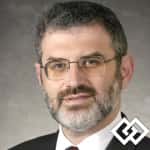Delayed Diagnosis of Pancreatic Cancer Linked to Inadequate Imaging Studies
This case involves a male patient who was diagnosed with a slow-growing form of cancer in the ducts near his pancreas. The patient was subsequently treated with an ampullectomy, in which the lesion was removed endoscopically.
Updated on
Case Overview
The margins of the removed lesion were found to be negative for cancerous cells, and doctors believed that the cancer was not invasive to the patient’s pancreas. This result prompted doctors to order a 6-month period of observation of the patient’s condition, primarily through the use of upper gastrointestinal endoscopy as well as ultrasound. Though the course of this observation period, the patient underwent multiple endoscopies, all of which were negative for suspicious lesions, however the doctor did not order any ultrasounds during the observation period. One year after the conclusion of the observation period for the initial lesion, the patient was diagnosed with a mass in the head of his pancreas, which necessitated a Whipple procedure and left the patient with a grim prognosis.
Questions to the Hematology expert and their responses
Can you determine whether surveillance of the pancreas by the means described above is the standard of care?
Surveillance of the pancreas by upper endoscopic ultrasound for total ampullectomy for this type of cancer, which is resected with negative margins indicated is within reasonable practice, which includes blood studies, chest radiograph, and a CT scan of the abdomen and/or pelvis every 6 months. Most of the literature suggests CT scan, not ultrasound, for additional monitoring. The National Comprehensive Cancer Network recommends it on PANC-6 category 2B recommendation, which means there is some disagreement among experts on this topic.
About the expert
This highly qualified, board certified, extremely well published expert earned his bachelor's degree from Yeshiva University and his medical degree from the State University of New York Downstate Medical College. This was followed by a residency in internal medicine at the New York Presbyterian Lower Manhattan Hospital and at Hahnemann University Medical Center. This expert then completed his formal medical education by pursuing a fellowship in Hematology and Oncology at the Long Island Jewish Hillside Hospital Medical Center. This expert has earned numerous awards for his contributions as a physician. This expert is extremely well published, having authored 28 Peer-reviewed Journal Articles, 10 Abstracts and 16 reviews. This expert's mastery of research has allowed him to serve as reviewer and editor for numerous leading medical journals. This expert previously held numerous positions, serving as Director of the Cancer Center of Generations Manhattan, Chief of Hematology and Oncology and associate director of the cancer center at Lincoln Medical Center, Co-Director of the Division of Medical Oncology and Hematology at Brookdale University Hospital, Associate Professor of Clinical Medicine at Cornell University and as Associate Professor of Medicine at the University of Medicine and Dentistry of New Jersey. This expert currently serves as Associate Attending at a regional hospital and on the Medical advisory board for a pharmaceutical company.

E-000029
Specialties:
Subscribe to our newsletter
Join our newsletter to stay up to date on legal news, insights and product updates from Expert Institute.
Sign up nowFind an expert witness near you
What State is your case in?
Subscribe to our newsletter
Join our newsletter to stay up to date on legal news, insights and product updates from Expert Institute.

